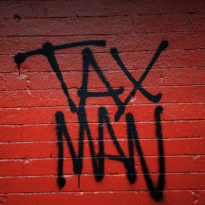Do the HMRC and ONS data posted this week provide clues to tax cuts in the forthcoming Budget?
The UK posted its largest budget surplus for 30 years in January 2024, official figures from the Office for National Statistics have shown.
The better-than-expected figures reveal that despite the UK economy entering a recession, public sector borrowing in January was in surplus by £16.7 billion, more than double the surplus of January 2023 and the largest surplus since monthly records began in 1993.
Borrowing in the financial year-to-January 2024 was £96.6 billion, £3.1 billion less than in the same ten-month period a year ago. The figure was also £9.2 billion less than the £105.8 billion forecast by the Office for Budget Responsibility in November 2023, thanks in part to lower interest payments on government debt.
Laura Hayward, tax partner at Evelyn Partners, said: “The borrowing data is backward looking but the better-than-expected out-turn in the last set of public finance figures before the Budget might put a spring in the step of the Chancellor as he formulates his key fiscal statement.”
Separately, HM Revenue & Customs data showed that PAYE income tax and National Insurance Class 1 receipts for April 2023 to January 2024 were £336.2 billion, up £22.7 billion from the same period last year. The soaring increase in tax take has persisted despite the fact that these figures include the first month of the government’s 2% cut to National Insurance from 12% to 10%.
Meanwhile, inheritance tax receipts for April 2023 to January 2024 were £6.3 billion, which is £0.4 billion higher than the same period last year. The increase means the Treasury is on course to take record receipts of about £7.6 billion from IHT in the 2023/24 tax year, after surging to an all-time high of £7.1 billion in 2022/23.
Hayward said: “The fiscal drag effect across the board of taxation has shored up the public finances with burgeoning tax revenues in the last two or three years, as nominal gains in income and wealth exceed frozen, and in some cases shrinking, tax allowances and advance across static thresholds.
“With this process at work, it’s no surprise that IHT receipts continue to rise on an annual basis. Although a relatively small number of large estates are typically behind the lion’s share of annual IHT revenues, this is being supplemented by thousands of more modest inheritances.”
Rachael Griffin, tax and financial planning expert at Quilter, said: “Though time will tell whether the cut to NI will cause a slowdown in the rate at which this increase in tax take grows, the fiscal drag effect caused by the frozen income tax thresholds coupled with inflation driven wage growth will likely keep the number ticking up.
“The cut to National Insurance allows basic rate taxpayers to save a maximum of £754 a year. However, this saving is already being eaten into as households face increased costs elsewhere.”
There has been growing speculation that the government will consider a further cut to either income tax or National Insurance in next month’s Budget and these latest figures may provide the Chancellor with more leeway.
Griffin said: “Polls suggest the Conservatives are struggling, so we can expect they will pull out all the stops at the budget in an attempt to sway voters as we near the election. Should a further cut materialise as part of this, we could see tax revenues fall considerably.
“Inheritance tax had been hitting the headlines as an area for potential change but those rumours have since gone quiet. Though higher house prices and frozen thresholds have seen more people caught by the IHT net in recent years, ultimately, it impacts relatively few families but brings in a tidy sum to boost government coffers which it will be unwilling to relinquish, particularly if other tax cuts are on the table.”
Danni Hewson, head of financial analysis at AJ Bell, commented: “Our old friend fiscal drag helped boost the tax take. And there lies the rub. Cut taxes and cut into the cash that’s funding increases in government staffing costs and benefit payments. Then there’s the argument that cutting taxes and putting a little more into all of our pockets might rekindle those inflation embers and make central bankers more wary about cutting interest rates.
“And with the UK economy officially in recession confidence has taken a knock. Sector after sector has been lobbying for assistance, for a boost to help businesses stay on their feet.
The chancellor is once again stuck on a high wire. With the weight expectation from so many parties pulling at his ankles, keeping his balance won’t be an easy task.”





























